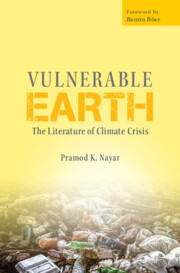5 - Justice Matters: Human and Nonhuman Toxiconomies
Published online by Cambridge University Press: 30 April 2024
Summary
When Catherine Flowers in her memoir, Waste (2020), records how Lowndes County, Alabama, ‘inhabited largely by poor Black people who, like me, are descendants of slaves’, has a serious problem of waste accumulation in people's 1homes, she points to not just the present and future defined by sewage but to a certain past, a racialized history of land- and people-use. Flowers writes:
You can't understand how rural Alabama wound up with raw sewage in people's yards without first learning about how African Americans were brought here as slaves to work the soil. (4)
Flowers's advocacy-text-cum-memoir documents the acute distress of environmental injustice in areas populated mainly by coloured people and highlights the links between histories of transnational slavery, race, capitalism and contemporary American culture, especially government funding, policies and welfare measures. Environmental harm stems from a history of other kinds of harm suffered by the African Americans, argues Flowers.
The events in Lowndes originate elsewhere, and Flowers’ memoir is not merely an exercise in toxichorography – a portmanteau term for chorographic accounts that have toxified ecosystems and communities as their key theme – but presents us with planetary histories of environmental and social injustices, with the two forms of injustice being interlinked.
From a different context, Chen Qiufan in his novel Waste Tide (2019) giving us the backstory of Scott Brandle, a researcher for TerraGreen Recycling Co., Ltd., writes of the research group that wished to study ‘the impact of illegal logging on the environment and native tribes [in Papua New Guinea] with the goal of forcing the local government to crack down on illegal logging’ (unpaginated). This study was not, Brandle recognizes, for either environmental (the forests) or social or civic (the tribes) reasons, but to ensure that the ‘Rimbunan Hijau Group could be given a monopoly on the lumber supplies of Papua New Guinea’. Qiufan, through the thoughts of Brandle, calls the bluff when he writes: ‘[T]he so-called sustainable development was … just another name for legalized looting’ (unpaginated). Qiufan's toxichorography of Papua New Guinea reveals the toxic economy that inflects even the environmentalisms in our time where the environmental harm for the natives emerges from the calculation of environmental benefits that will accrue for the Rimbunan Hijau Group.
- Type
- Chapter
- Information
- Vulnerable EarthThe Literature of Climate Crisis, pp. 185 - 248Publisher: Cambridge University PressPrint publication year: 2024

